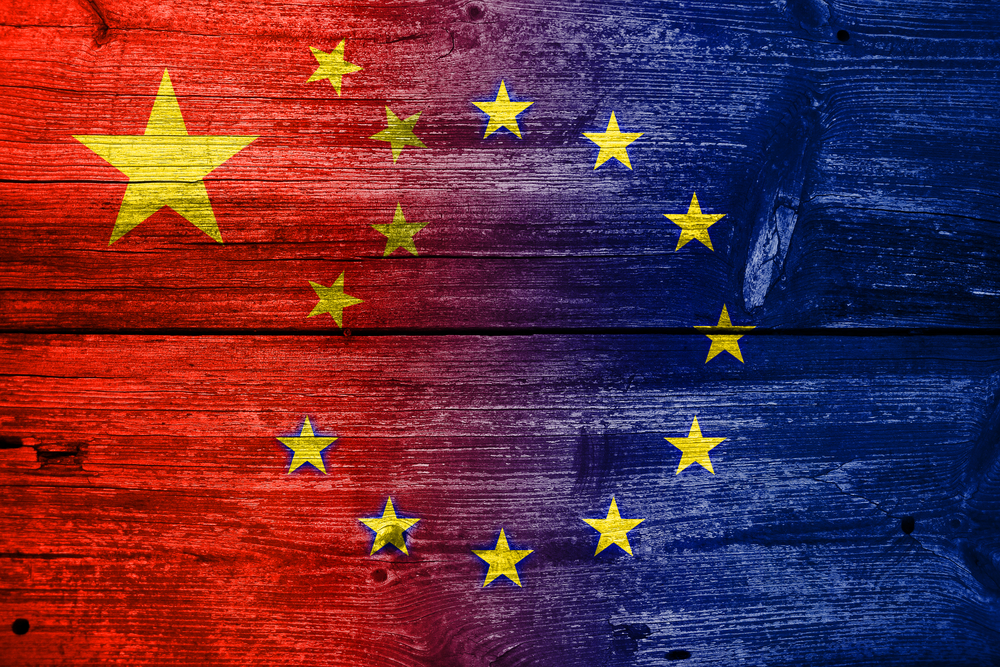Shooting for Summit Success in Beijing

Please note that we are not authorised to provide any investment advice. The content on this page is for information purposes only.
The annual China-EU Summit is a great opportunity for Beijing and Brussels to align complementary investment agendas. Failure is no longer an option.
The annual EU-China Summit will take place in Beijing in mid-week. The high stakes are reflected by high-level participation, which includes the European Council President Donald Tusk, European Commission President Jean-Claude Juncker and Federica Mogherini, the EU high representative for foreign affairs and security policy.
The annual China-EU Summit is a great opportunity for Beijing and Brussels to align complementary investment agendas. Failure is no longer an option.
The annual EU-China Summit will take place in Beijing in mid-week. The high stakes are reflected by high-level participation, which includes the European Council President Donald Tusk, European Commission President Jean-Claude Juncker and Federica Mogherini, the EU high representative for foreign affairs and security policy.
The Summit will be followed by another with G20 finance ministers and central bankers in Chengdu, Sichuan province.
After Brexit, positive results are vital to both Brussels and Beijing. Success would contribute to brighter global prospects.
The timing is opportune. The Summit follows last weekend’s G20 meeting in Shanghai where trade ministers representing the world’s largest economies agreed to trim global trade costs by 15%, to establish a new coordinated global investment policy, to ratify the WTO’s trade facilitation agreement by the year-end and to extend a pledge to cut trade protectionism.
In the past half a decade, the plunge of the world trade has been painful to Europe’s open trading economies – particularly after the UK Brexit referendum.
Need for complementary investments
Today, China is the EU’s second-largest trading partner and one of the biggest markets for the 28-member bloc. Last March, the debate over China’s market economy status (MES) divided European countries and industries.
According to Luxembourg’s Finance minister Pierre Gramegna, China’s huge “One Belt, One Road” (OBOR) initiative to deepen economic links from Southeast Asia and the Middle East to Europe will be high on the EU-China Summit’s agenda.
Reportedly, Beijing is interested in looking into the €300 billion infrastructure fund in the EU and to eventually participate in the same way that many EU members have joined the Asian Infrastructure Investment Bank (AIIB).
More importantly, in the aftermath of the UK EU referendum, the world looks very different, thanks to extraordinary economic uncertainty, market volatility and political risk. Financially, Brexit shock has boosted safe havens, including US dollar and Japanese yen, just as it has penalized riskier equities, British pound and the euro.
However, much more is still be ahead. As risk-averse investors are increasingly cautious with capital, Europe may have to cope with recessionary headwinds, increasing political division and ever-more volatile markets.
Time is running out
Only a week ago, the International Monetary Fund (IMF), which is not known for superlatives, gave a bottom line warning to Brussels. The euro area is at the crossroads and there is no time for complacency.
Despite recovery, the region’s medium-term outlook is weak, if not bleak.
In the current status quo, the kind of muddling through that has been the rule in the past half a decade is no longer an option. The UK has navigated to economic uncertainty. In France, reforms linger amid popular opposition. In Italy, a banking crisis could pave way for the next euro shock, Rome’s constitutional referendum over Italexit. In such circumstances, Spain’s expansion would splutter, while Germany’s growth deceleration would materialize faster than expected.
After Brexit, likely spillover channels (trade, investment and financial linkages) will virtually ensure that Ireland, Luxembourg, the Netherlands – Europe’s traditionally open, free-trade economies – will be most exposed to the UK contagions.
In contrast, Russia and Eastern Europe, along with France would be least affected by adverse spillovers. Further integration cries for collective action within Europe and accelerated cooperation with investment partners.
However, China is significantly less exposed to the Brexit. As Beijing has only begun critical financial reforms, it is not as vulnerable to British portfolio flows or bank claims as the US; except through Hong Kong.
Nevertheless, Brexit pressures have potential to amplify discouraging trends in world trade and investment. World export volumes have been falling for half a decade. Foreign direct investment (FDI) has been stronger but it is not immune to new headwinds and remains behind the pre-financial crisis high.
Higher stakes, new opportunities
In light of the Brexit, US election risks, immigrant turmoil, geopolitical threats and global economic downgrades, the EU-China Summit offers a high-level opportunity to reassess challenging issues, including the post-Brexit review of joint economic goals, Europe’s need for investment capital, China’s OBOR initiatives and new development banks (AIIB, NDB), and Beijing’s quest for market economy status.
New crises mean new opportunities. The UK’s actual exit from the EU could reduce China’s strategic benefits from deepening economic ties between London and Beijing, but it would elevate stakes and opportunities in China-EU cooperation. A post-Brexit UK remains important to China, but not as vital as a non-Brexit UK. A pre-Brexit EU is important to China, but a post-Brexit EU is critical.
In an increasingly uncertain global economy, deeper cooperation between a recovering Europe, despite its medium-term challenges, and growing China, despite its medium-term deceleration, would pave way to greater stability, lower volatility and lesser risk.
Why the EU-China Summit Must Succeed is republished with permission from The Difference Group




